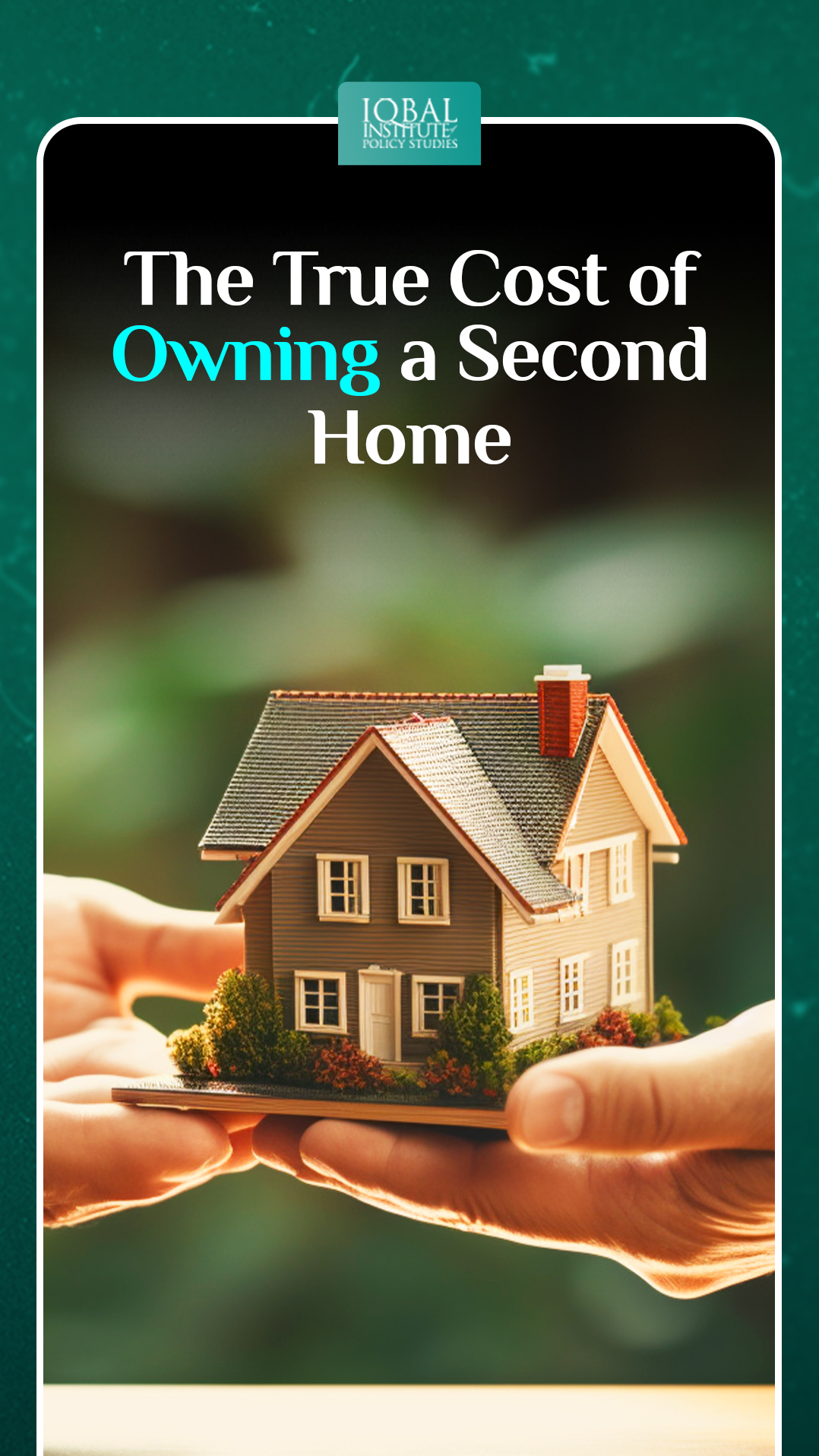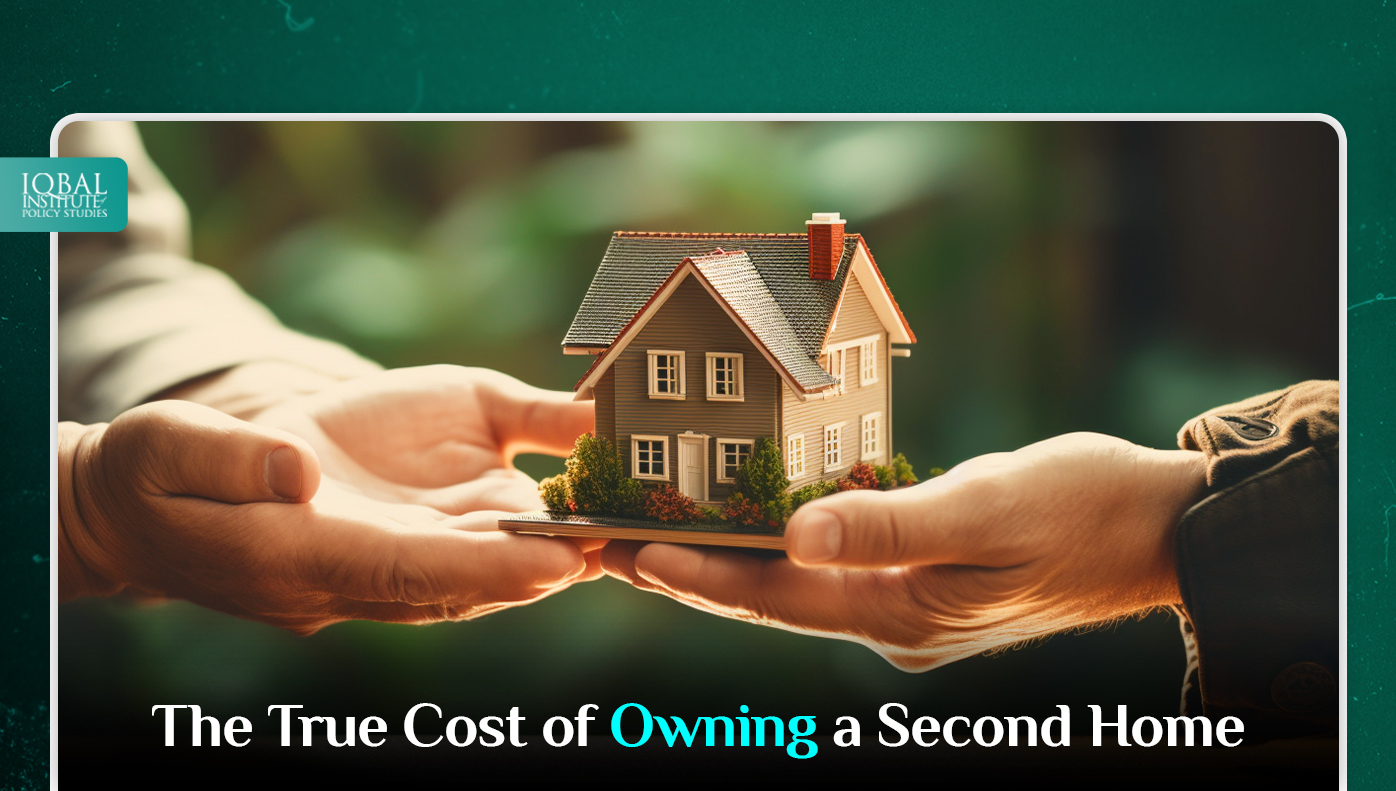Considering the idea of owning a second home or a vacation property may seem appealing, but it’s crucial to be aware of the potential expenses, both in terms of time and money. Hidden costs associated with owning a second home can quickly add up, impacting your finances and lifestyle. While some individuals and families find buying a vacation home sensible, as it offers affordability and regular use, especially during specific seasons, for others, the burden of long-distance property maintenance combined with a desire to explore new destinations can turn owning a second home into a costly and impractical decision. It’s essential to carefully weigh the pros and cons before making such a significant investment.
Cost Of Owning A Second Home
Owning a second home comes with numerous real and, at times, hidden costs. Essentially, you’ll need to replicate most of the items you have in your primary home. Though it might not require the same level of quality or quantity, furnishing a second home with the basics can still be a significant expense. Here are some of the typical costs you can expect to incur after purchasing a second home:
- Appliances, furniture, and furnishings like rugs, linens, cookware and décor
- Cable, internet and utilities
- Funds for a down payment, cash purchase, or monthly mortgage payment
- Property taxes, insurance, local taxes or fees, and possibly association dues
- Periodic landscaping/mowing, maintenance, cleaning and caretaking
- Repairs and improvements
- Transportation (getting there, renting/shipping/buying a new car)
While the list above may not include any unexpected items, there are instances where the cost of a specific line item can catch you by surprise.
Property Taxes
The true cost of owning a second home can sometimes reveal unexpected expenses, particularly concerning property taxes. In certain locations, such as sought-after vacation destinations in Pakistan, property taxes can be notably high, although it’s essential to consider the relative perspective. If you are accustomed to property taxes in other areas of Pakistan, the taxes on a second home may seem comparatively lower.
Moreover, changes to tax laws in recent years have increased the carrying costs of a second home for many taxpayers in Pakistan. Deductions for local and property taxes are now limited, and the overall limit on deducting mortgage interest has been reduced. These changes can significantly impact the financial considerations of owning a second home in Pakistan, making it crucial to carefully evaluate the true costs before making such an investment.
Mortgage Costs
Potential second home buyers might encounter surprising costs when trying to secure a mortgage for their vacation house. Depending on the intended use of the property, lenders may impose higher down payment requirements, adjust interest rates, or might not have a loan program that suits the buyer’s needs.
For instance, if the plan involves renting out the second home for more than two weeks per year, the lender might classify it as an investment property, necessitating a minimum 20% down payment and restricting mortgage loans to conforming options. Lenders can differ in their policies, so conducting thorough research is crucial. Additionally, since second homes are perceived as riskier than primary residences, the interest rates offered are typically noticeably higher.
Insurance
As climate change continues to trigger weather-related disasters like floods and extreme weather events, obtaining homeowners’ insurance is becoming more expensive in Pakistan. In some cases, it is becoming increasingly difficult as insurers are withdrawing from certain markets altogether.
Rising sea levels and increased risks of flooding will also impact the costs of homeowners’ insurance in beach and coastal communities in Pakistan. Depending on the location, flood insurance might not fully cover the damages, particularly if the second home’s income is reliant on rental earnings to offset ownership expenses. Moreover, it’s crucial to consider how climate change and natural disasters could potentially hinder your ability to sell the property in the future, whether due to personal preferences or financial reasons.
Reducing The Cost Of Owning A Second Home By Renting It
Not all vacation homeowners in Pakistan may be interested in offsetting property costs through renting, and some towns or associations might have restrictions on short-term vacation rentals. However, renting the property can help reduce the expenses of owning a second home—with some considerations. Homeowners can typically rent a house for a limited duration tax-free at the federal level, but exceeding this period makes the entire amount of net rental income taxable.
In many cases, this implies that homeowners would need to rent the vacation home for a significantly longer period than the tax-free limit to genuinely benefit from the additional rental income. The decision to rent for an extended duration should be weighed against factors like loss of personal use, wear and tear on the property, and the associated hassle. Depending on individual circumstances, the potential financial gains may not outweigh the additional efforts and expenses involved in renting a second home.
Owning A Second Home Means Traveling Less To Other Destinations
One of the hidden costs of owning a second home in Pakistan is the potential reduction in available time or money for traveling to other destinations. While some individuals and families may not find this to be an issue, others may discover that the allure of a second home fades over time. Keeping up with the maintenance and responsibilities of two homes might become challenging, or the actual experience of owning a second home may not live up to their initial expectations. This is especially crucial to consider if the second home is intended to be a future retirement residence.
However, there are still options to explore, depending on one’s willingness to rent out the property and the vacation rental market in the area. Renting the home for a specific season and choosing to travel to different locations is one possibility. It’s essential to evaluate the potential income from renting and the associated expenses to have a realistic contingency plan before making the decision to buy a second home in Pakistan. By carefully considering preferences and needs, individuals can make a well-informed choice about whether owning a second home aligns with their lifestyle and financial goals.
Time Is Valuable. So Is Money
Time is a precious and limited resource. Before deciding to buy a second home, it’s crucial to consider how you will manage and oversee the property. While cameras can be helpful, they can’t address all issues. In case of emergencies like frozen pipes or fallen trees on the roof, reliable and trustworthy assistance becomes indispensable. However, finding such help can be challenging, especially for busy professionals who may struggle to handle urgent household needs or tenant-related matters.
Moreover, think about the impact of buying a second home on your overall financial plans. Every dollar spent on the property is one less dollar available for other important goals or future savings. Assess whether the property’s purchase will significantly affect your cash flow and your ability to achieve near-term or long-term financial objectives. It’s crucial to weigh the trade-offs and be comfortable with the financial implications.
Remember that life should not be put on hold until retirement, and being excessively wealthy does not guarantee happiness. While real estate can be an emotional purchase, it’s essential to consider its cost, potential illiquidity, and impact on your overall financial situation. Running the numbers and seeking advice from a financial advisor can provide an independent perspective on the feasibility of buying a second home, helping you make a well-informed decision that aligns with your financial well-being and life goals.
Should You Buy A Second Home?
Certainly! Ultimately, the decision to buy a second home hinges on your unique financial situation, preferences, and how you envision things evolving over time. For instance, young families might find that having their own vacation home, equipped with all the kids’ essentials, is the best way to enjoy regular getaways. However, as the children grow older and become involved in weekend sports, activities, and social circles back home, the allure of frequent trips may diminish.
Fortunately, the luxury home rental market offers a wide array of options. If buying a second home doesn’t align with your financial goals or lifestyle, you can still indulge in your success by choosing to stay at various destinations. The flexibility to explore new places and opt for stays lasting weeks or months may prove to be a more suitable approach. This way, you can savor the experience without worrying about the responsibilities and hassles that come with owning a property. Ultimately, finding what suits you best and makes you happiest is what matters most.
Conclusion
Owning a second home or vacation property can be appealing, but hidden costs, property taxes, and insurance considerations must be carefully evaluated. The impact on lifestyle and travel plans should also be considered, along with the potential rental income. Flexibility in exploring luxury home rentals can be a suitable alternative. Finding the right balance between financial prudence and personal fulfillment is crucial, and consulting with a financial advisor can provide valuable insights for a confident decision that aligns with long-term goals and well-being.
This article is written by Waqar Ahmad. Waqar is a research analyst at the Iqbal Institute of Policy Studies (IIPS).



Leave a Reply